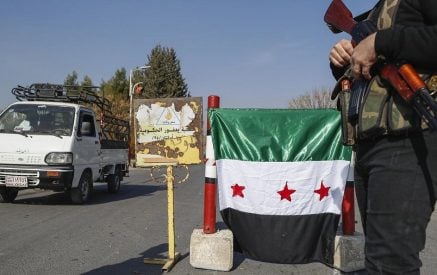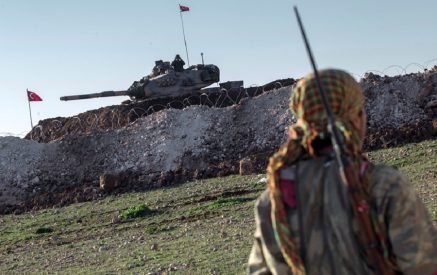I like the Syrian-Armenians. They are modest, decent, industrious, respectful and dignified people. I mean the people who have come to Armenia. I assume that the rich people have not come here, they have gone to a better and more prosperous countries. The representatives of the middle class are living next to us: owners of small shops, artisans, managing food facility. The facilities where the “management” is handled by the Syrian-Armenians, the matter of cleanliness, food quality and service are better handled. We do not see the cynicism and agility that we often see with the “soviet Armenians”.
How have the Syrian-Armenians lived in “good years” of Assad? In their words, they were “free”. “Free”, of course, does not mean that they have organized rallies cursing Assad’s authoritarian regime, no one would allow them doing it, and our compatriots, as far as I understand it, did not have such ambitions. “Free” does not mean that they had public positions. Simply, they were able to freely be engaged in trade or craft. Did the Syrian-Armenians corrupt Arab officials? As they say, yes. But they were doing it once a year, after which they left alone. “And not like here,” added my interlocutors.
Syria was an established state, yes, with a minority dictated dictatorship regime and corruption. But this state has educated some culture in 3-4 generations of our compatriots who have found their homeland there, where diligence and decency are respected. While the Soviet and post-Soviet regime educated agility and stubbornness in many of Armenia’s Armenians.
I understand that we and the Syrian-Armenians have lived in very different conditions, each of us have our own advantages and disadvantages. But the fact that we are different, it is wonderful. Our culture (in the broadest sense) needs fresh resources. Being a mono-ethnic state, on the one side, is fine, there is the danger of unrest on the ground of separatism and ethnicity, on the other hand, it is bad, because we are cooked our own pot, and turn into a swamp. And because of the tragic events in Syria, the representatives of our own ethnic group appeared next to us, who however represent a completely different culture, and from whom we have a lot to learn.
Read also
When I enter a cafe, a canteen or a shop, where Syrian-Armenians are working, I am sure that they will not deceive me there, they will serve me kindly and give a normal quality product. To the point, at affordable prices. Maybe buying this product, we are helping our brothers.
Aram ABRAHAMYAN






















































